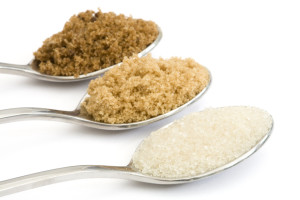 The other day I saw a large sign outside a ‘frozen yogurt’ establishment advertising that their product was a “great source of probiotics”. Really? The problems here are two: one, that “frozen yogurt” is not really yogurt but a low-fat ice cream, and two: that a pro-biotic has a broad definition, and food industry is using it to their advantage.
The other day I saw a large sign outside a ‘frozen yogurt’ establishment advertising that their product was a “great source of probiotics”. Really? The problems here are two: one, that “frozen yogurt” is not really yogurt but a low-fat ice cream, and two: that a pro-biotic has a broad definition, and food industry is using it to their advantage.
Let me focus on the second issue. You’ve probably heard the word pro-biotics to mean the active cultures of living bacteria found in fermented foods like yogurt, kefir, sauerkraut and kimchi. However, food producers are permitted to use pre-biotics (see below) and claim pro-biotic content.
Pre-biotic was a word originally intended to differentiate from the former in that they consist of anything that is a food source for bacteria.
Translation: sugar. It’s not necessarily the ‘scary’ sugar high-fructose corn syrup. In fact many different food sources are used as pre-biotics, a common one being inulin, from chicory root or the Jerusalem artichoke. Inulin is composed of fructo-oligo-saccharides (FOS), which seem to be a favourite among pro-biotic strains.
Put pre-biotics together with pro-biotics in a food or supplement product, the living organisms will multiply more readily, either in the product itself (i.e. food) or once the product has been consumed (i.e. probiotic supplement). Does it work? Absolutely.
Again, by definition pro-biotics are not necessarily the bacteria themselves, but the sugars added to the product.
This can be misleading, and when done with a low-fat product, can actually be worse for your health. Why? On the way through the GI tract they feed not just the good intestinal flora (micro-organisms) but also the undesirables (pesky strains of yeast, and pathogenic bacteria, for example.) This increases risk of uncomfortable gastro-intestinal symptoms like gas and bloating. For those with diverticulosis, it may increase risk of diverticulitis (an infection). Sugar also ‘paralyzes’ part of the immune system for about 5 hours after ingestion, not to mention it increases blood sugar rapidly.
Sugar feeds micro-organisms, which double their population within 20 minutes after a good feed. This is fine if the vast majority of your intestinal flora is of the desirable, healthy kind, but how many of us have achieved perfection here? Oral antibiotics wipe out all intestinal bacteria, leaving only yeasts and other opportunists at large without natural enemies. Eating sugar/ pre-biotics is a bad move at this point, even if they are combined with a pro-biotic because the sugars (inulin, etc.) will feed the yeast, too.
Now there are pro-biotic cheeses. Or, wait: is this really something new? Haven’t cheeses always contained pro-biotics? Since cheeses are aged, and bacteria are critical to the aging process, of course cheese contains pro-biotics. It’s all about the marketing.
If you feel worse on pro-biotic foods or supplements than not, this may be a clue that your digestive system is out of balance. Get back on track with a properly-designed cleansing program.
In the meantime, buy plain yogurt and sweeten it yourself with fruits or stevia plant extract.

